Shit-covered at Crécy
The genre of historical comics is something that I've never paid enough attention in this journal but this is about to change. While browsing the web yesterday I accidentally run into a graphic novel "Crécy" by the British writer and publisher Warren Ellis.

Crécy was a battle in which a small and completely outnumbered English army was victorious over the French, as a result of superior weaponry and tactics, demonstrating the importance of the modern military concept of fire power. The effectiveness of the English longbow, used en masse, was proven against armoured cavalry, contrary to the conventional wisdom of the day which held that archers would be ineffective and be butchered when the armoured units closed in. At the end of the battle only about 300 Englishmen were killed, but the French death toll exceeded 30,000, including 11 princes, an archbishop and 1200 knights and noblemen.
The whole book is presented as a first person lecture delivered to the modern audience by William of Stonham. Ellis has his narrator / lecturer report and editorialise in modern English totally aware of the modern audience he is addressing, which not only reads a damn sight better than the usual historical narrative of “foresoth my King, I see the French approaching. Today shalt be a good day to die” etc, etc, but also allows the narrator to step further out of his own story to present the greater historical and military picture to us, the readers.
And it goes on like that for all 64 wonderfully nasty, detailed and historically accurate pages. What follows reads like a stand up comedy routine and historical lecture. This is not the pleasant, cleaned up version of history that we’re usually presented with. This version has all the drudgery, pain, dirt and shit left in.
The artwork on Crecy is also quite pleasant. Artist Raulo Caceres delivers quality, detailed black and white imagery. The dirt, the shit, the sheer drudgery of the march followed by the terror and insanity of the battle is all captured on the page better than many name artists could begin to manage.
You can read the complete review here.
Also you can find some of the best pages from this graphic novel under cut. Mostly gratis to asylums .
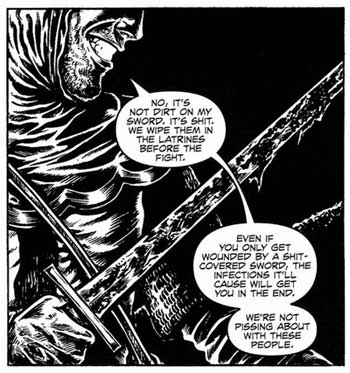
William of Stonham's discourse on poliscience:

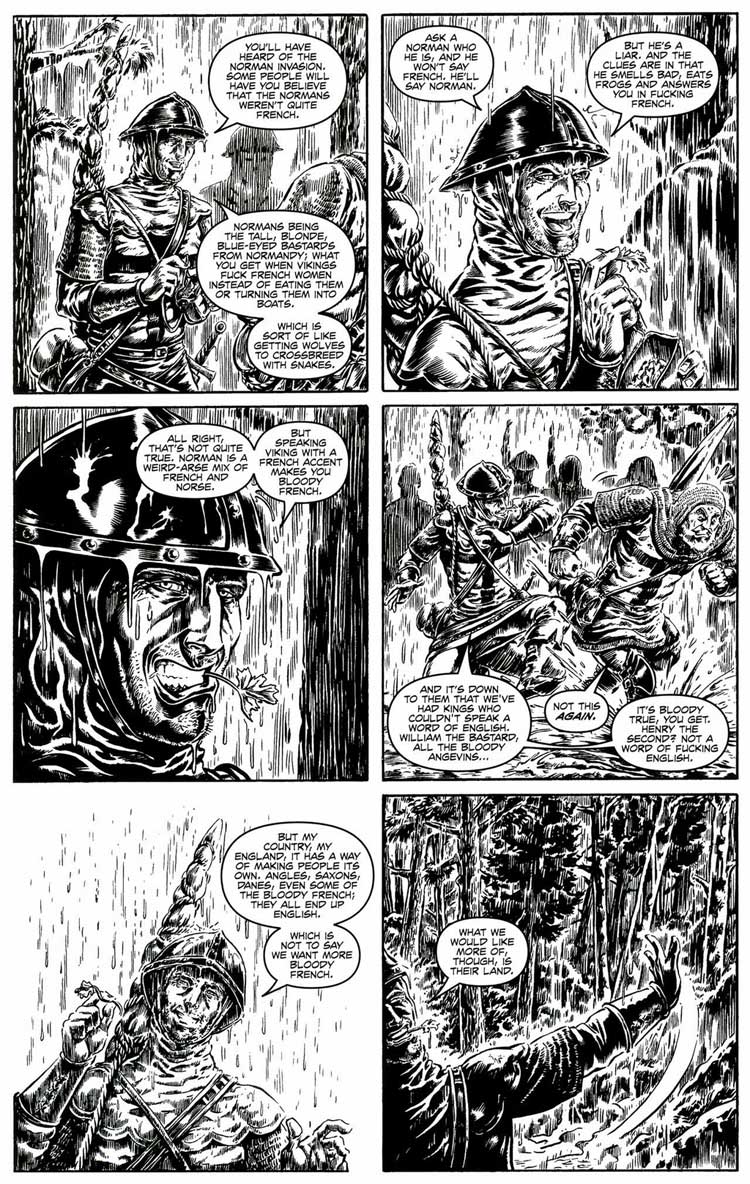
William of Stonham's discourse on arrowheads:
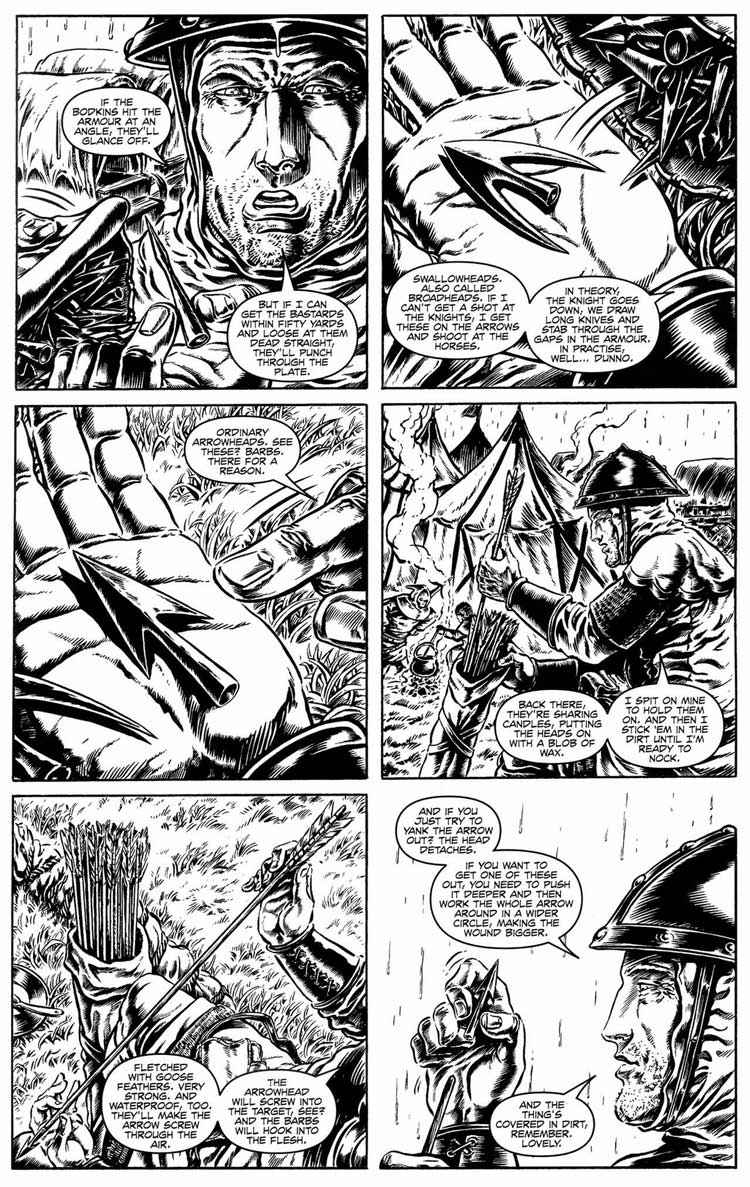
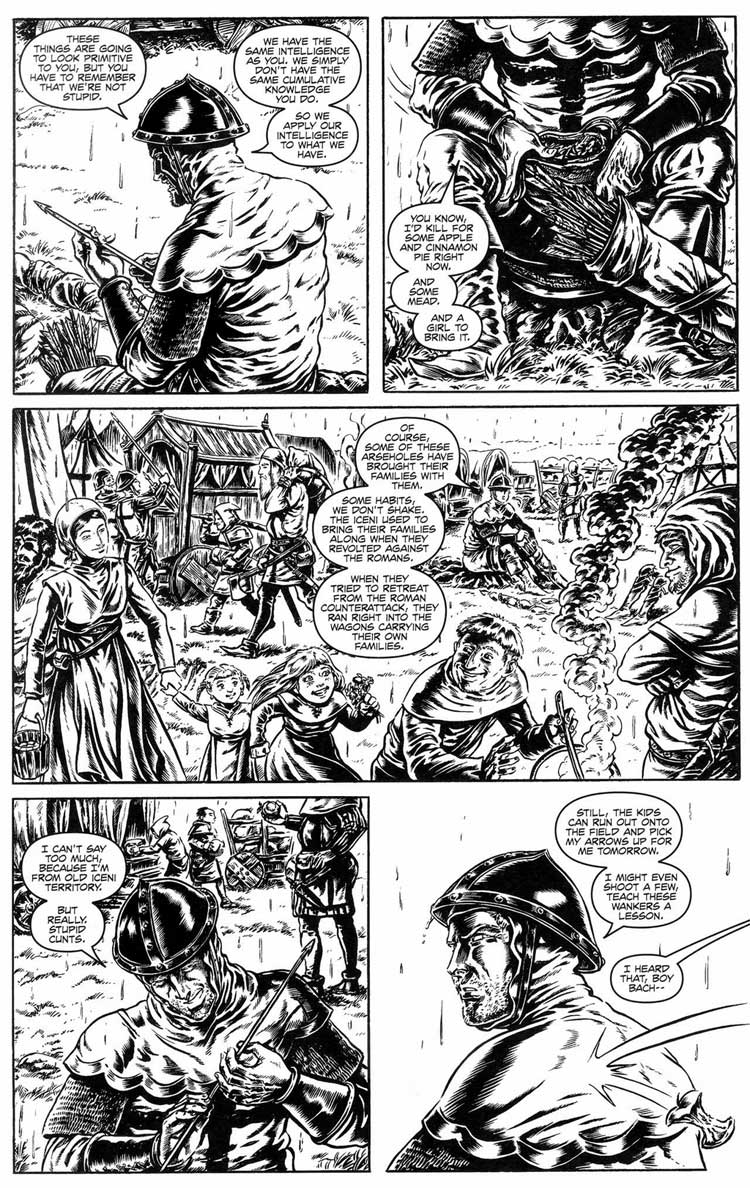
At the end of the battle:
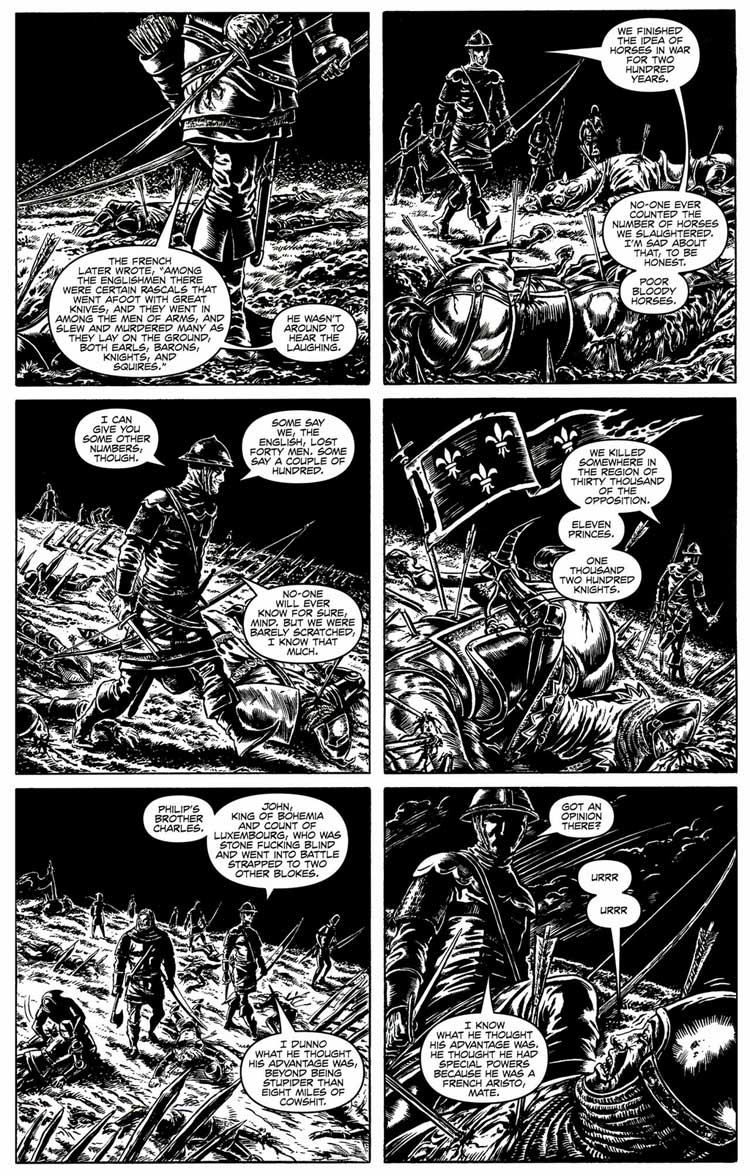
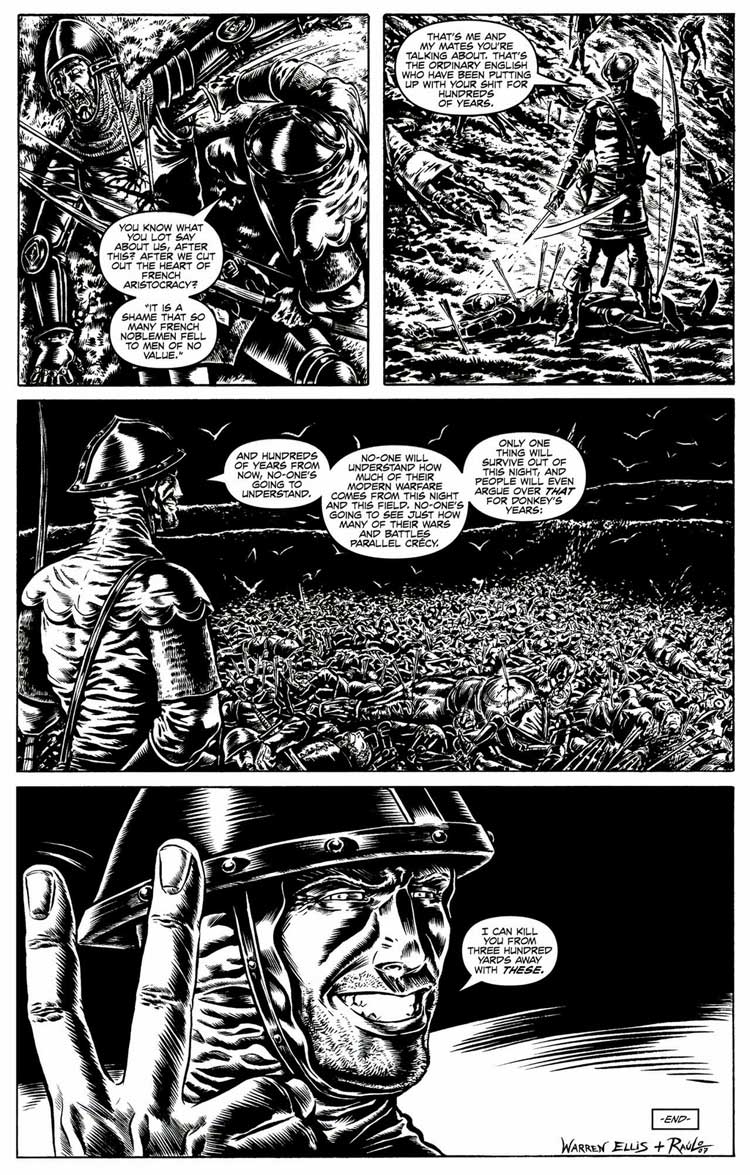
The reason for the gesture was that when archers were caught, those fingers were cut off. It was proof you could still fire an arrow.

Crécy was a battle in which a small and completely outnumbered English army was victorious over the French, as a result of superior weaponry and tactics, demonstrating the importance of the modern military concept of fire power. The effectiveness of the English longbow, used en masse, was proven against armoured cavalry, contrary to the conventional wisdom of the day which held that archers would be ineffective and be butchered when the armoured units closed in. At the end of the battle only about 300 Englishmen were killed, but the French death toll exceeded 30,000, including 11 princes, an archbishop and 1200 knights and noblemen.
The whole book is presented as a first person lecture delivered to the modern audience by William of Stonham. Ellis has his narrator / lecturer report and editorialise in modern English totally aware of the modern audience he is addressing, which not only reads a damn sight better than the usual historical narrative of “foresoth my King, I see the French approaching. Today shalt be a good day to die” etc, etc, but also allows the narrator to step further out of his own story to present the greater historical and military picture to us, the readers.
And it goes on like that for all 64 wonderfully nasty, detailed and historically accurate pages. What follows reads like a stand up comedy routine and historical lecture. This is not the pleasant, cleaned up version of history that we’re usually presented with. This version has all the drudgery, pain, dirt and shit left in.
The artwork on Crecy is also quite pleasant. Artist Raulo Caceres delivers quality, detailed black and white imagery. The dirt, the shit, the sheer drudgery of the march followed by the terror and insanity of the battle is all captured on the page better than many name artists could begin to manage.
You can read the complete review here.
Also you can find some of the best pages from this graphic novel under cut. Mostly gratis to asylums .

William of Stonham's discourse on poliscience:


William of Stonham's discourse on arrowheads:


At the end of the battle:


The reason for the gesture was that when archers were caught, those fingers were cut off. It was proof you could still fire an arrow.